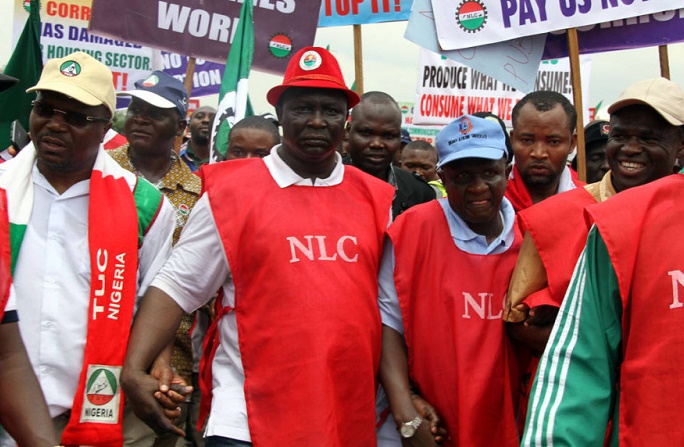The organized labour on Saturday said it would mobilize workers across sectors of the Nigerian economy to protest moves to remove minimum wage from the exclusive to the concurrent legislative list.
Mr. Joe Ajaero, the President, United Labour Congress (ULC) said at the pre-2017 May Day seminar organized by ULC, in Lagos.
The concurrent list stipulates that powers are shared jointly by both the central and regional or state governments as stipulated in the Constitution, even though both governments can make law on matters that fall under the concurrent list, the central government is supreme.
This means that in case there is a conflict of law made by both governments, the law will supersede that of the regional or state government.
Subject matter on the concurrent list includes health, agriculture, education, road, and housing among others.
According to Ajaero, the move is ill-motivated to deny workers their right to live well which is what some of the governors have been advocating but we will mobilize against them.
He said that If the planned delisting of wage from the exclusive legislative list succeeds, it means that the country would no longer have a national minimum wage.
“It means that each state of the federation will be empowered to legislate and arrive at what should be their respective minimum,’’ he said.
The ULC leader recalls that the current minimum wage of N18,000 was signed into effect in 2011, by former President Goodluck Johnathan, subject to a review every five years.
He said that labour since 2016, had been agitating for the review of the wage citing hyperinflation and the devaluation of the Naira which had continued to impact negatively on workers’ take-home pay.
He said that workers not only deserved wage increase but better welfare package in both the public and private sector.
Ajaero said that the national economy was wobbling not because Nigeria as a nation was poor, but because of deep-rooted corruption.
“’This is why as a labour movement, we need to be in the streets to insist that working condition of the people must be improved.


